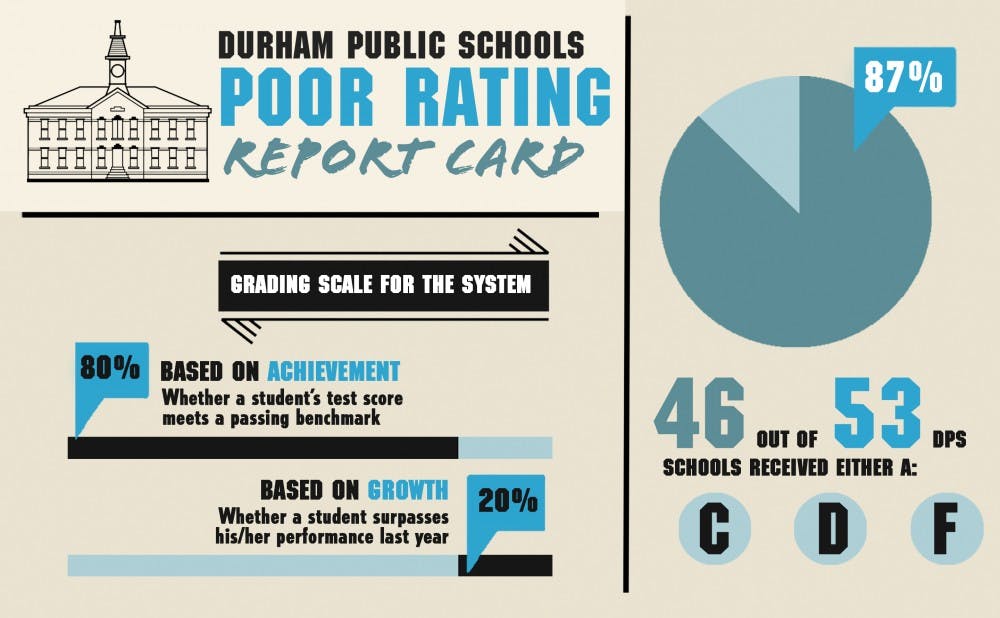The majority of Durham Public Schools received low ratings from a new state assessment—but the results indicate an unfair rating system rather than poor education, educators and community leaders said.
The ratings, issued in school "report cards," were released earlier this month for the first time. Of the 53 schools in DPS, 46 received letter grades of C, D or F. The system used to grade schools places a weight of 80 percent on students reaching certain Common Core testing benchmarks and 20 percent on students surpassing their performances from years past.
The school report cards were part of a new rollout of education policy initiatives for North Carolina last year that included an updated standard course of study and assessment model.
Local school board members have critiqued the new system’s emphasis on testing to measure student growth, stating that a more holistic approach should be implemented.
“The school grades are based on the children’s test scores, and I don’t believe the score accurately reflect students’ abilities or the quality of the school,” said DPS school board member Leigh Bordley.
Bordley added that grading scales can change from year to year. For example, DPS grades this year were calculated on 15 point scale, with 85 to 100 being an A. Next year, grades will be calculated using a ten point scale, meaning that schools that maintain their score from year to year could drop into a new category.
She also expressed concern that the ratings do not consider the additional burden faced by schools serving students who live below the poverty line. In 2013-14, 65 percent of Durham students received free and reduced lunch.
“It’s really just a proxy for poverty, it really just shows how many kids a given school has that are living in poverty,” said school board member Natalie Beyer.
Mike Rogers, a fourth and fifth grade teacher at George Watts Elementary School, noted that report cards can have a harmful effect on teachers who have achieved significant growth but do not yet meet the benchmark.
“It talks about where you are at this moment rather than how far you’ve come, and it’s very disheartening to educators who have been working long hours on behalf of their children,” Rogers said.
The ratings were not a surprise to DPS leadership, said Bordley.
“We’ve known this was coming," she said.
Teachers and administrators were briefed about estimated ratings for their schools prior to the release of the grades earlier this month, she added.
The North Carolina General Assembly passed House Bill 435 in 2013. The bill mandated the inclusion of the school performance grading system.
“There is progress to be made at every school, we want all of our kids to achieve proficiency," Bordley said. "We have to be realistic about where kids are starting and take a holistic view."
Get The Chronicle straight to your inbox
Signup for our weekly newsletter. Cancel at any time.

